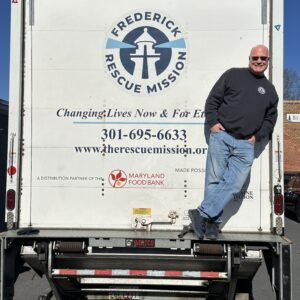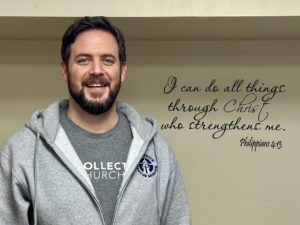The journey to recovery from substance addiction can be daunting in a world where stressors and challenges can seem insurmountable. However, residential recovery programs offer a beacon of hope and a structured path toward healing. If you have a loved one who you’re considering enrolling in such a program, this guide delves into the intricacies of residential recovery, exploring its principles and benefits in the journey towards a healthier, more fulfilling, Christ-centered life.
Understanding Residential Recovery
Residential recovery programs provide individuals with a supportive and immersive environment designed to address addiction, mental health disorders, or co-occurring conditions. At the Frederick Rescue Mission, our residential recovery program – Changed Life Recovery, focuses solely on substance addiction, helping them get to the core of their addiction. Unlike outpatient programs, where individuals receive treatment while living at home, residential recovery entails residing at a specialized facility for the duration of the program.
Benefits of Residential Recovery
- Structured environment: Residential recovery provides a structured environment free from the triggers and stressors of daily life, allowing individuals to focus wholeheartedly on their recovery journey.
- 24/7 support: Residents have around-the-clock access to trained support professionals who provide continuous support and guidance, fostering a sense of safety and security.
- Peer support: Engaging with peers who share similar experiences fosters empathy, understanding, and camaraderie, creating a supportive community essential for recovery.
- Comprehensive programming: Residential programs offer a wide range of programs tailored to individual needs, ensuring a comprehensive approach to healing.
- Transition support: Many residential programs provide transition planning and aftercare services to support individuals as they reintegrate into their communities post-treatment, reducing the risk of relapse.
Christ-Centered Approach
Our residential recovery program stands out for its Christ-centered approach to healing, emphasizing the significance of spiritual growth and connection in the recovery journey. We integrate Christian principles, teachings, and practices to nurture the soul and foster a profound sense of purpose and meaning. Our programming encompasses various elements, such as:
- Prayer and meditation: Residents are encouraged to engage in prayer, meditation, and reflection to deepen their spiritual connection and find solace in times of struggle.
- Community worship: Regular worship services, Bible studies, and fellowship gatherings provide residents with opportunities to come together in worship, praise, and mutual support, strengthening their faith and sense of community.
- Scripture-based curriculum: Our curriculum incorporates scripture readings, study guides, and discussions to help residents explore the teachings of Christ and apply them to their recovery journey.
Residential recovery represents a transformative journey towards healing, offering individuals the tools, support, and guidance needed to reclaim their lives from the grips of addiction. By embracing the principles of comprehensive care, peer support, and holistic healing, residential programs empower individuals to embark on a path of lasting recovery and rediscover the joy of living a fulfilling, purposeful life, anchored in faith and spiritual renewal. If you or a loved one is struggling, know that help is available, and a brighter tomorrow awaits on the road to residential recovery, guided by the light of Christ.




